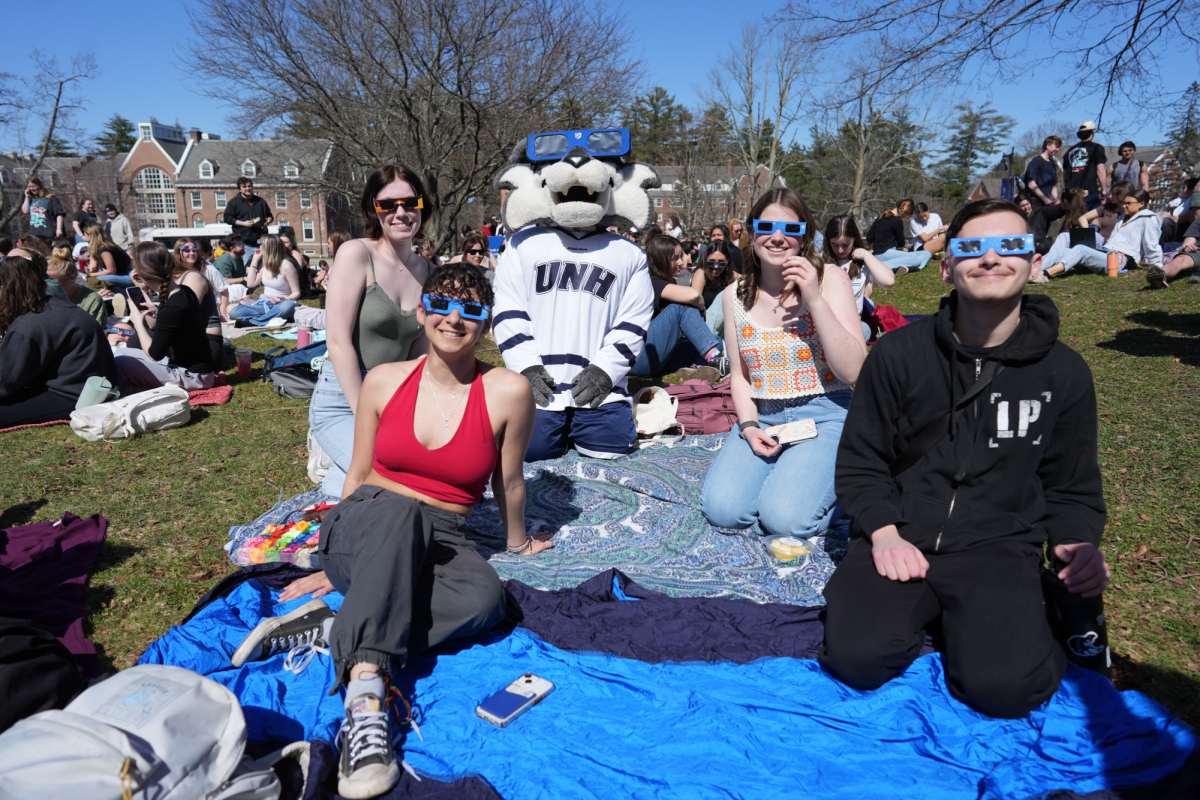By Katie Beauregard, Contributing Writer
“We need to stand in a world where people are not for sale,” said David Batstone, co-founder and president of the global anti-slavery organization Not For Sale.
Casually walking through the Strafford Room of the MUB, Batstone quietly whistled while greeting students and local community members. And although he continued to crack jokes and engage his crowd, Batstone discussed the journey of writing his book, “Not For Sale.”
Batstone’s book focuses on the incredibly prominent act of human trafficking—an annual $32 billion industry, with over 30 million people being forced to act in it. As jaws dropped and people shifted with discomfort with the thought, Batstone went on to discuss the amount of work, money and involvement he has put into raising awareness, with an end goal of stopping human trafficking altogether.
“You hear about [human trafficking] in Eastern Europe and Africa, but to hear that it’s in the United States is astounding,” said Matthew Clarkson, a sophomore and RA in Sawyer Hall.
While slides of his journey with the involvement of human trafficking played behind him, Batstone talked about how his participation in the prevention of human trafficking started—in his home state of California. As he explained that his favorite restaurant in the San Francisco Bay Area was shut down after a human trafficking ring was discovered, there was too much passion in [his] blood to stop, Batstone said.
As his interest grew from the United States to countries like Cambodia, Thailand and Peru, so did his drive to make a change.
Instead of just donating money to human trafficking, Batstone wanted to do more— and he did.
With a team of people equally as passionate, Bastone created jobs for freed slaves in the Amazon, by finding a plant that could produce tea, which would ultimately lead to jobs and a sustainable life for these people.
“Creating jobs for everyone is really relevant,” Clarkson said. “We see the large picture and how money works in the world, so seeing how money and your dreams can be feasible is so important.”
The final product of Batstone’s idea is the organic tea, REBBL (Roots, Extracts, Berries, Bark and Leaves), which is completely made and manufactured by freed slaves in the Amazon. Not only are people in the buying and consuming this product there, but it is being sold in the United States at whole food stores.
Aside for REBBL, Batstone shared his stories about starting culinary schools in Amsterdam, for women involved in sex trafficking, a form of human trafficking. This idea grew from the act of selling soup, “This Soup Is Not For Sale,” to women forced to work in windows at the Red Light District. As more of “This Soup Is Not For Sale” sales grew in Amsterdam, Batstone and company needed help making the product. This aided women in leaving sex trafficking, to pursue culinary arts.
Although Batstone’s success is proof in itself, his passion and drive to eliminate human trafficking was shown as he spoke in the Strafford Room.
Sales and marketing for his book were not in mind; but the urgency to spread awareness about his cause was.
“I thought he was super charismatic and a moving speaker,” said Sydney Gilllis, a member of Amnesty International at UNH.
And as Batstone ended his speech in the Strafford Room, he couldn’t leave without a few more laughs, and an invitation to Not For Sale’s eighth anniversary this weekend.
So if any Wildcat’s find their way to San Francisco, make sure to find David Batstone, and congratulate him on eight years of progressive awareness.




















